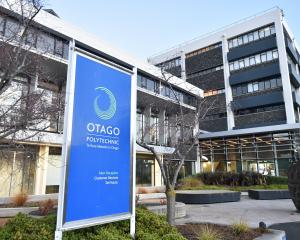More than a year out from the actual presidential election, candidates from major political parties start pushing their cases for selection.
Sometimes, an independent with no chance of winning joins the race, taking votes off one of the final Republican or Democrat candidates, therefore influencing the final outcome.
During the past few days, property tycoon Donald Trump has been making all the running as he tries to secure the Republican nomination for president. So far, he has succeeded in focusing the attention of the media, his opponents and the voting public on his utterances.
As New Zealand marked the 50th anniversary of its involvement in the Vietnam War, Mr Trump drew the anger of many by ridiculing Senator John McCain's war record.
Mr McCain, a former presidential candidate, was a prisoner of war in Vietnam for five years.
His refusal of an early release from a Hanoi prison camp vaulted him to fame long before he entered politics.
Mr Trump is refusing to apologise for saying Mr McCain is not a war hero because he was captured.
Apparently, Mr Trump, who did not serve in the war thanks to medical and study deferments, only likes people who were not captured.
During an interview, Mr Trump accused Mr McCain of not doing enough for veterans, calling the service of American military veterans who were not prisoners of war unrecognised.
In that way, Mr Trump is largely correct.
US Vietnam veterans, like those in New Zealand, fought in an unpopular war and are still battling the neglect of medical and social welfare care.
Generations of families have to be tested for the ongoing effects of Agent Orange being used all those years ago.
Earlier, Mexico was used by Mr Trump as an election platform.
He claimed the country was sending rapists and other criminals to the US.
Building a ''great, great wall'' on the Mexican-American border would send the right message, he said.
With some sense of irony, Mr Trump - who starred in the US reality show The Apprentice - was fired by television network NBC because of his anti-Mexican statements.
In what has become familiar territory for voters in many countries, the race card being played by Mr Trump is, however, paying dividends - at least in the short term.
He has pushed ahead of the former leading Rebulican candidate Jeb Bush, the son and brother of two former presidents, and he is now the GOP's leading challenger for the presidential nomination.
There is a long way to go before the primaries get into full swing but, even so, the tycoon is tapping into a vein of American insecurity seen often following the shootings of young black men and the treatment of African-Americans in general by police.
But the Republicans are already struggling to attract Latino votes and Mr Trump's latest outbursts will do nothing to help.
Mr Trump has commanded vast media attention for weeks thanks mainly to his bombastic utterings while many leading Republicans - fearing offending his supporters - have been restrained in their responses.
One of their main fears is Mr Trump eventually running as an independent and siphoning off votes from Mr Bush, the most likely Republican candidate.
However, his attacks on Mr McCain have left party officials exasperated about the developer's disruptive presence in the campaign.
Only at the weekend did other Republican contenders find the courage to attack Mr Trump's comments.
But has it taken them too long to respond?Democrats, already relishing Mr Trump's long shadow in the Republican race, are attempting to link all of the Republican field with his outspoken comments.
With his unbridled ambition, his wealth and ability to tap into the fears of Middle America, Mr Trump - many would say sadly - may yet play a defining role in the election of the next president of the United States.












